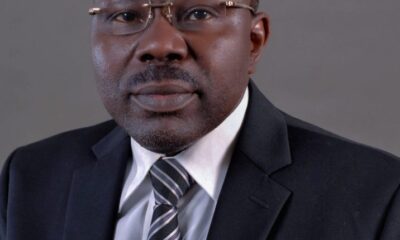News
Cement hits N9,500 per bag in Lagos months after BUA crashed price to N3,500
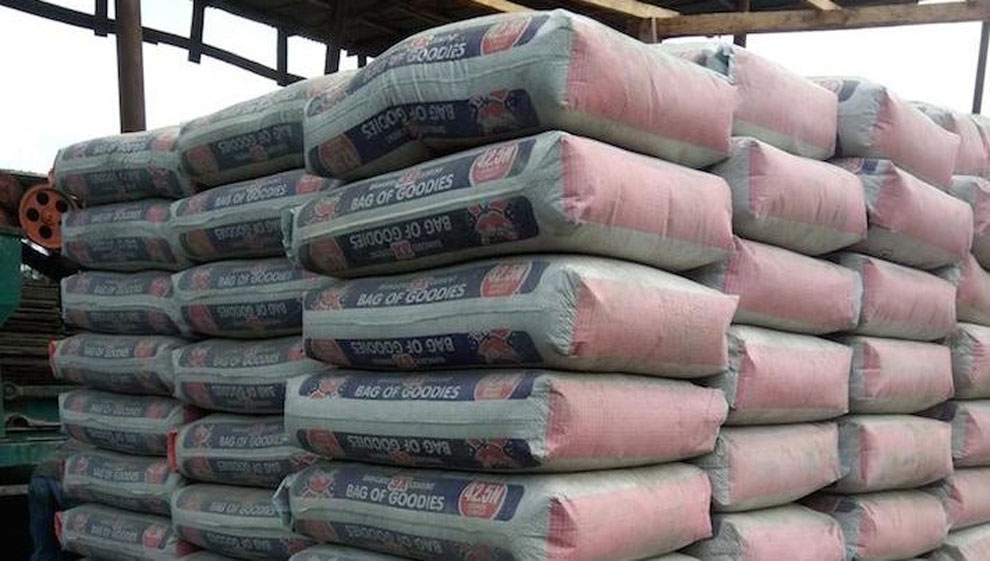
Cement hits N9,500 per bag in Lagos months after BUA crashed price to N3,500
The price of a 50kg bag of cement has soared to around N9500 in many retail outlets in Lagos further exacerbating the effects of inflation in the country.
Checks by Nairametrics in many retail shops in Lagos reveals that since January, the price has risen from around N6,000 to N6,500 to over N9000 as of today.
The sporadic rise in the price of the product has made some retailers halt selling fearing they might see increased prices in the near future.
A cement retailer in Ikorodu who wished to remain anonymous said he has stopped selling since this Monday and still waiting for his distributor to provide the current price.
He stated, “I stopped selling around Monday, my distributor has not given me new market price. She told me to wait for now.”
Another retailer lamented about the increase in the price on sales stating that there has been a significant drop in sales since January when the volatility in cement prices began.
READ ALSO:
- Missing lady: Police arrest 7 suspected ritualists, recover human heart, body parts
- Terrorists storm Katsina mosque, kill three, abduct many
- 2023 election: Peter Obi gives account of campaign funds, reveals balance
According to her, “January and February is our peak sales period but everywhere is just quiet. N9000 for a bag of cement is too expensive and would discourage people from starting any project.”
BUA’s N3,500 per bag mere lip service
The increase in the price of cement cuts across major cement producers in Nigeria- Dangote cement on the average sold for N9,500. On the other hand, BUA cement retailed for N9,000 while some shops sold Elephant cement for N9,500.
Of particular interest is the increase in the price of BUA cement whose Chairman, Abdulsamad Rabiu had stated that the company will peg the price of BUA cement at N3,500 after a meeting with President Tinubu in October.
The increase in the price of cement syncs with a projection by Cardinal stone that stated that the price of cement will stay high in 2024 due to producers increased operational cost.
In its financial report for Q3, 2023, Dangote cement recorded an increase of 33% in operation expenses when compared to the previous year.
An earlier statement by the Cement Producers Association of Nigeria had warned that cement prices may hit N9,000 from around N5000 then over the federal government’s insistence on building roads with concrete.
Cement hits N9,500 per bag in Lagos months after BUA crashed price to N3,500
News
Nigeria will stop fuel importation by June – Dangote
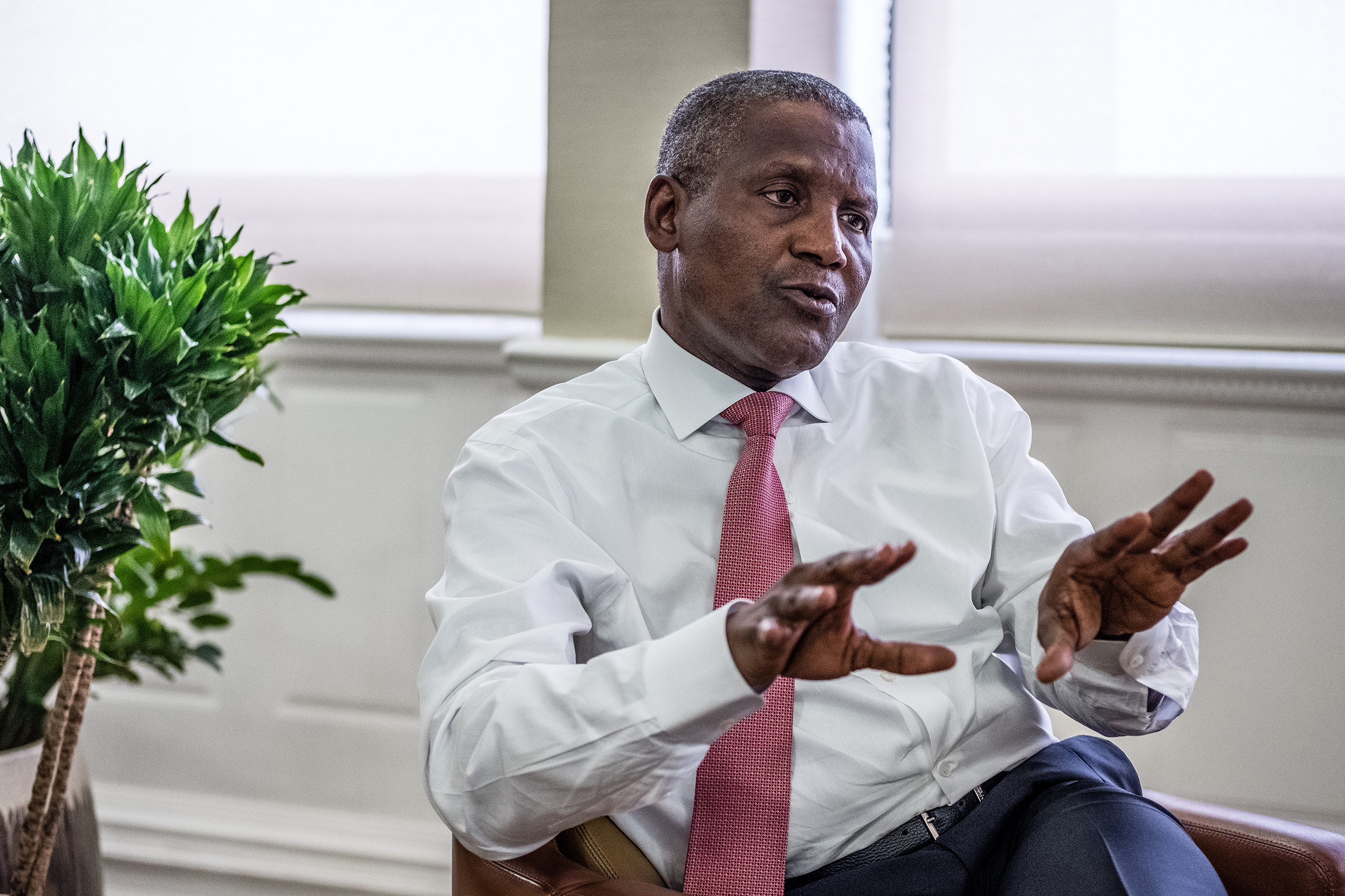
Nigeria will stop fuel importation by June – Dangote
Aliko Dangote, Africa’s richest person, has announced that Nigeria will cease importing petrol by June.
Speaking at the Africa CEO Forum Annual Summit in Kigali, Dangote revealed that his refinery will commence production next month, meeting Nigeria’s petrol needs and eliminating the need for imports.
“Right now, Nigeria has no cause to import anything apart from gasoline and by sometime in June, within the next four or five weeks, Nigeria shouldn’t import anything like gasoline; not one drop of litre,” he said.
The refinery will also produce diesel, aviation fuel, and other essential products, making Africa self-sufficient in these commodities.
READ ALSO:
- Rainstorms kill seven, many others injured
- Olanipekun, Yayale, Elechi, Yusuf Ali, others named higher institutions’ governing council chairmen
- Nearly 10,000 evacuated in Ukraine’s Kharkiv region after Russia attack
With a capacity of 650,000 barrels per day, the refinery will meet the demands of West Africa and beyond.
Dangote emphasized that the refinery will not only focus on petroleum products but also produce polypropylene, polyethylene, base oil, and linear benzyl, raw materials essential for producing detergents and other products.
This will reduce Africa’s reliance on imports and make the continent self-sufficient in these critical products.
Dangote expressed his optimism that within three to four years, Africa will no longer need to import fertilizers, as his refinery will produce urea, potash, and phosphate, meeting the continent’s needs.
The refinery’s second phase is set to begin early next year, further expanding its operations and impact on Africa’s energy landscape.
Nigeria will stop fuel importation by June – Dangote
News
Olanipekun, Yayale, Elechi, Yusuf Ali, others named higher institutions’ governing council chairmen
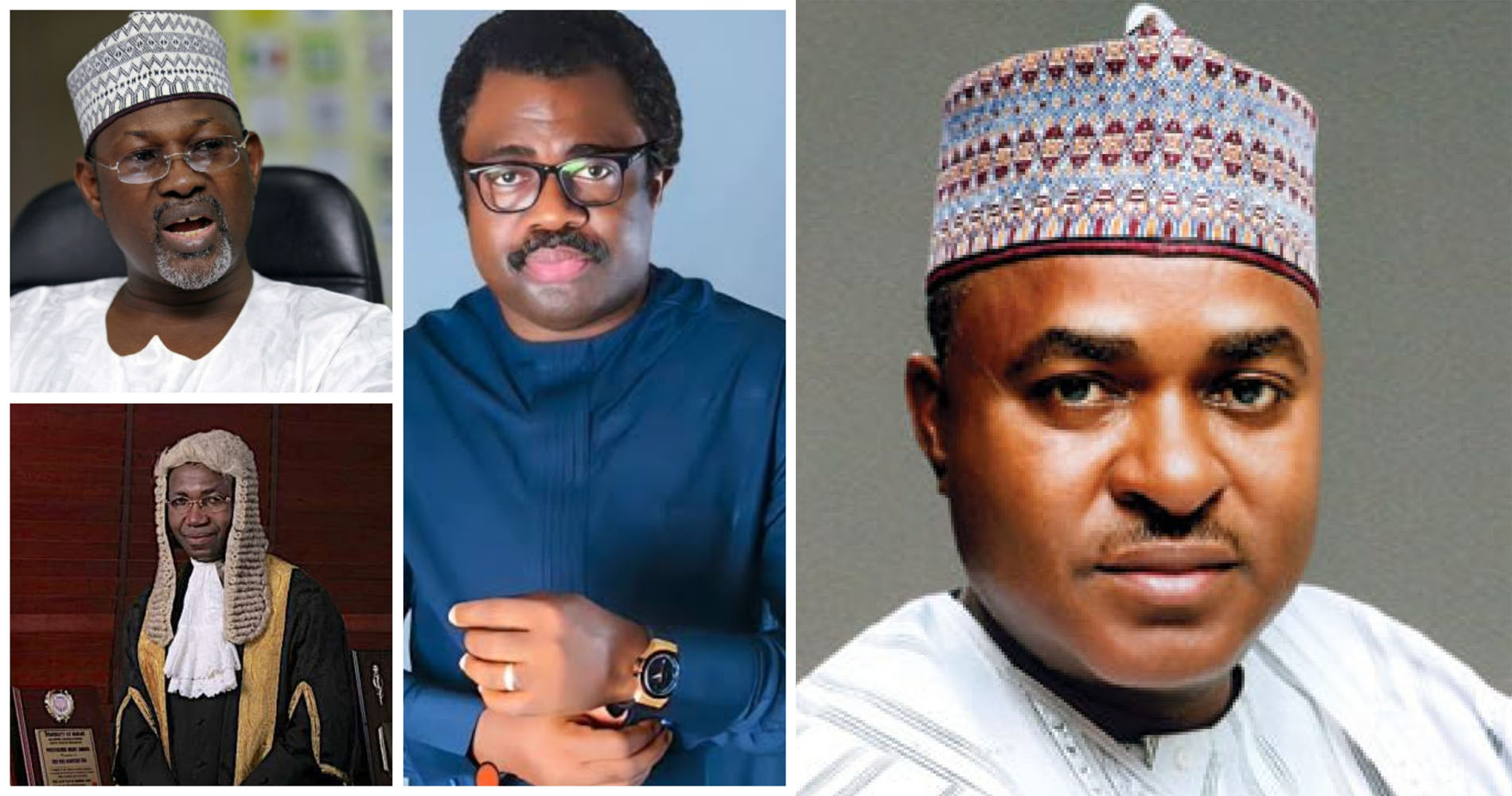
Olanipekun, Yayale, Elechi, Yusuf Ali, others named higher institutions’ governing council chairmen
President Bola Tinubu’s administration has unveiled a list of appointees to the governing councils of 111 federal universities, polytechnics, and colleges of education.
Notable figures among the appointees include former Independent National Electoral Commission (INEC) Chairman, Attahiru Jega; Senior Advocates of Nigeria Wole Olanipekun, former Bauchi governor, Isa Yuguda, and Yusuf Alli.
Others are former National Universities Commission Executive Secretary, Peter Okebukola; and labour activist, Issa Aremu. The individuals have been selected to lead the councils of various academic institutions across the country.
The announcement follows a recent ultimatum issued by the Academic Staff Union of Universities (ASUU), which demanded the Nigerian government address issues such as the alleged illegal dissolution of university governing councils and the continued use of the Integrated Payroll and Personnel Information System (IPPIS) for salary payments.
The Federal Ministry of Education responded by assuring that these concerns were being handled and that the list of council members would be released soon.
The appointments, signed by Permanent Secretary Didi Walson-Jack of the Federal Ministry of Education, include five representatives each for 50 universities, 37 polytechnics, and 24 colleges of education.
READ ALSO:
- Nearly 10,000 evacuated in Ukraine’s Kharkiv region after Russia attack
- Police inspector dismissed over ‘N29.8m theft’, three other officers demoted
- Russia could increase Ukraine attacks, says Zelensky
Specifically, Attahiru Jega has been appointed Chairman of the Governing Council of Usmanu Danfodio University, Sokoto. Wole Olanipekun will chair the University of Lagos, while Yusuf Alli takes on the Federal University of Agriculture, Abeokuta.
Peter Okebukola will lead the University of Port Harcourt, and Issa Aremu will head the Federal College of Education (Technical) in Keana, Nasarawa State while Yuguda will chair the National Open University of Nigeria (NOUN).
Furthermore, former Senator Joy Emordi will lead Alvan Ikoku Federal University of Education in Owerri; and former Secretary to the Government of the Federation, Yayale Ahmed, will head the council of Ahmadu Bello University in Zaria.
Adamu Rasheed, the immediate past Executive Secretary of the NUC, has been appointed to the Federal University of Health Sciences, Otukpo in Benue State.
The new governing council members are scheduled for inauguration and a retreat on May 30 and 31 at the National Universities Commission’s headquarters in Abuja.
In June 2023, President Tinubu dissolved the governing councils of several key government agencies and higher education institutions, a move that sparked criticism from various stakeholders. They argued that the University Miscellaneous Act grants universities and their councils autonomy to self-regulate.
Olanipekun, Yayale, Elechi, Yusuf Ali, others named higher institutions’ governing council chairmen
News
UK lawmaker lauds EFCC, says Africa underestimates its strength
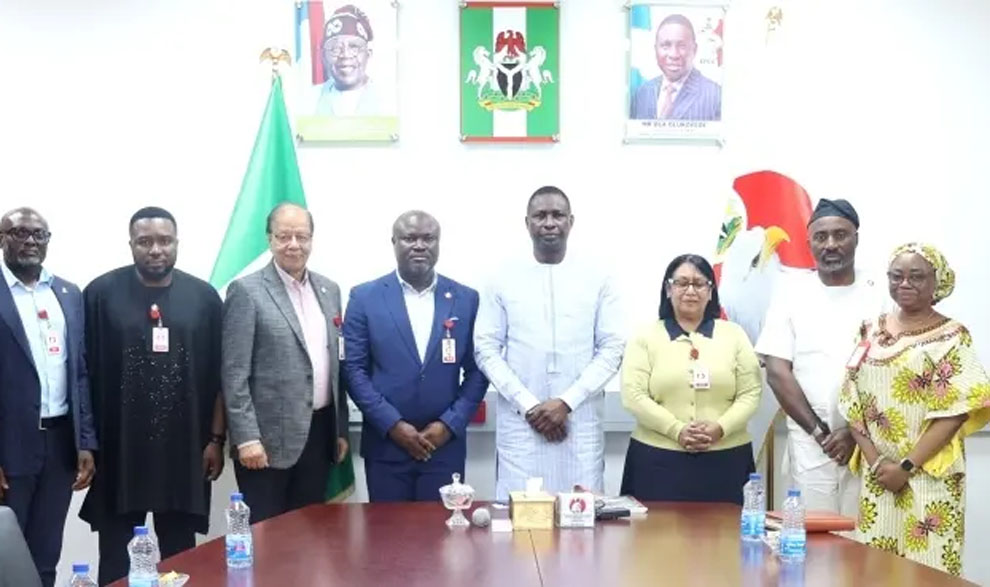
UK lawmaker lauds EFCC, says Africa underestimates its strength
In a significant boost to Nigeria’s anti-corruption efforts, the Economic and Financial Crimes Commission (EFCC) has received international recognition for its tireless work in tackling corruption.
Baroness Verma Sandy of Leicester, a member of the United Kingdom’s House of Lords, has commended the EFCC for its dedication to fighting corruption and promoting good governance in Nigeria.
During a visit to the EFCC headquarters in Abuja on Friday, Baroness Verma Sandy praised the Commission’s new leadership under Executive Chairman, Mr. Ola Olukoyede, for repositioning the organization on the path of professionalism and effectiveness.
She expressed confidence that the EFCC’s efforts would help change the global perception of Africa and build new confidence in the continent.
The Baroness, who led a six-man delegation of the UK-based African Leadership Organisation, acknowledged the EFCC’s efforts in shaping better narratives for Nigeria and praised the Commission’s innovative approaches to tackling corruption.
She emphasized the importance of international collaboration in the fight against corruption and encouraged the EFCC to continue its good work.
Sandy said: “We are so glad to be here. It is important having this organization led by somebody who has brought incredible positive changes to the country. And I want to thank all of your colleagues here for engaging with us today. I believe passionately on the strength of the African Continent. I am not connected at all to Africa, but I have been a champion for a continent that has under-estimated its own strength but has got so much to offer the world. And I think your organization will help change the perceptions and build new confidence. So, I am so pleased and honoured to be here.”
READ ALSO:
- We’re impressed by Tinubu’s security strategies – UK Govt
- Don’t involve Bello’s children in corruption fight, rights group tells EFCC
- Only my party can stop me from contesting 2027 presidential election – Atiku
EFCC Chairman, Mr. Olukoyede, thanked the Baroness and her delegation for identifying with the Commission and acknowledging its efforts.
He reiterated the EFCC’s commitment to tackling corruption and promoting good governance, emphasizing that corruption is a major obstacle to Africa’s development.
He highlighted the Commission’s new focus on prevention and addressing systemic issues that enable corruption, as well as its efforts to stimulate economic growth and prevent foreign exchange sharp practices.
-

 Business3 days ago
Business3 days agoDollar crashes against Naira at official market
-

 News2 days ago
News2 days agoUsing pre-registered SIM card may land you in jail, NCC warns
-

 metro3 days ago
metro3 days agoThree police officers sentenced to life imprisonment in Anambra
-
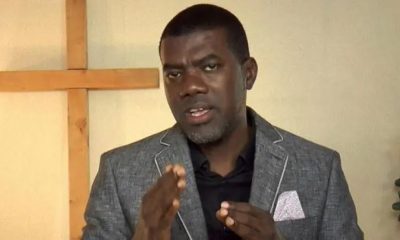
 News3 days ago
News3 days agoWike, Fubara are ego-driven, crude – Reno Omokri
-

 International2 days ago
International2 days agoUK says it’s developing radio frequency to blast out drones
-

 metro1 day ago
metro1 day agoFire guts new NNPCL tank farm in Lagos
-

 News2 days ago
News2 days agoUpdated: Reps condemn assault on Nasarawa female doctor by patient family
-

 News2 days ago
News2 days agoPolice grill Osun monarch, Ataoja of Osogbo, over petition

